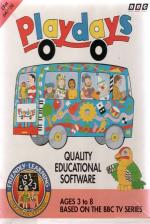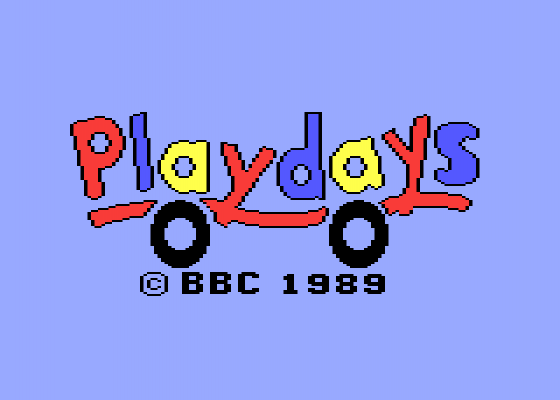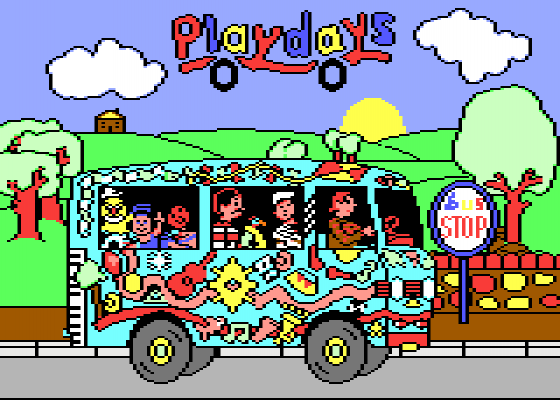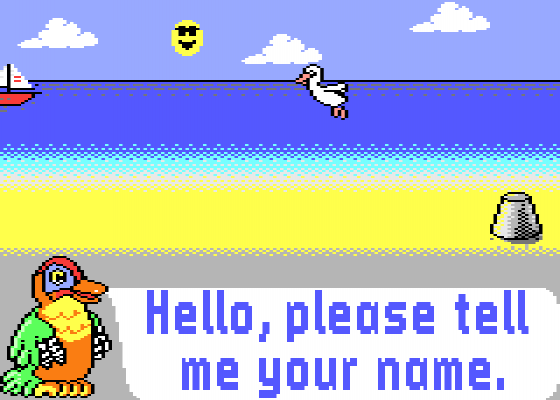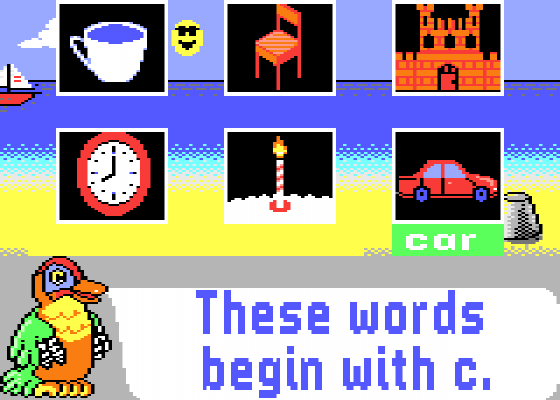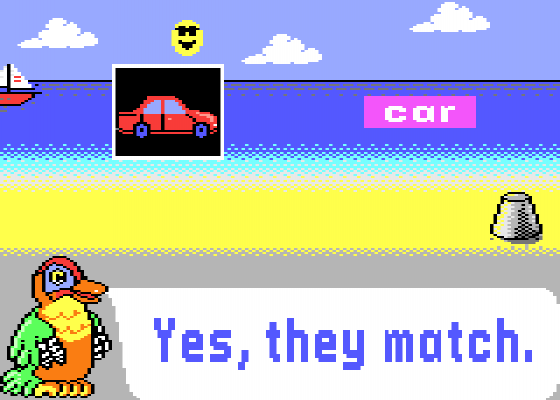
Commodore Format
 1st February 1993
1st February 1993
Categories: Review: Software
Publisher: Friendly Learning
Machine: Commodore 64/128
Published in Commodore Format #29
Playdays (Friendly Learning)
Today's stop for the Playdays' Play Bus is the C64. Yep, the programme that replaced the seminal Play School (just think - there will be a whole new generation that will never understand the cultural significance of Big Ted, and 'looking through the square window') has arrived in digital form. To any average four-year old, learning stuff like sums and spelling isn't a welcome pastime on a wet Wednesday afternoon (or any afternoon, or any morning, or any time, in fact) especially when they could be playing Cyberdyne Warrior instead. So the decent thing to do with anything vaguely educational if you want your kids to show any interest is to make it fun, with a capital F.
Alternative have worked closely with the producers of the BBC educational programme to produce this package for pre-school children and it features all the characters from the TV program (well it had to really, otherwise there was little point in Alternative acquiring the licence). Why Bird is the main character in the game, accompanying the child through the program and offering hints and tips if they seem to be having trouble.
One of the main teaching problems is having to constantly encourage the child and not to make them feel to stupid if they make a mistake. In Playdays, if a question is answered incorrectly Why Bird responds with by saying things which don't give out vibes that are too negative, like: "that was not the answer I had thought of" and "nearly, try again". Correct answers are rewarded with a cheery, "Well done" from the bird, and she waves her wings in the air and like she just don't care.
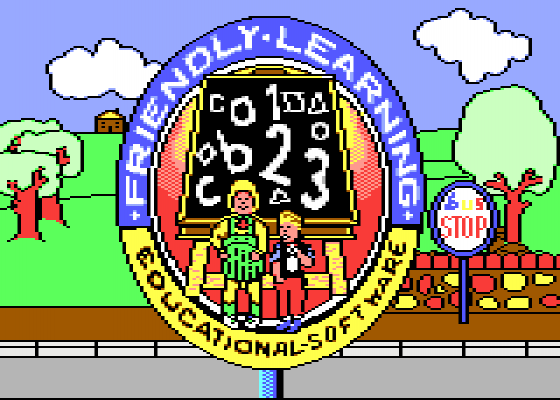
Playdays is dead simple to use. Once loaded, a young child could easily be left alone with their computer to be enlightened by the Playdays crew. The first thing the player is asked for is their name, and they're referred to by that name throughout the game, a personal touch that adds to the friendly feel to the program.
Each time the chid plays they will be greeted with different combinations of games to play and they have to choose a letter to concentrate on in the word games; all the letters of the alphabet are fair game except X. Select X and you play the three games: noughts and crosses, hunt the treasure and match the shapes (darned good ways of fooling a kid that they're not learning after all, they're just playing a computer game).
The game is either joystick or keyboard controlled, in which case only the cursor keys are used. On-screen cursors are big and bold and all the instruction text is in large clear print. The package includes a set of smart flash cards featuring numbers up to 20 and simple words that add an extra dimension of mental stimulus to some of the games.
Playdays is a well thought-out, efficiently-executed educational program. The tie-in with the TV show, unlike most licences, is a great bonus that should stop even the most hyperactive four- year old beating up his little sister for a couple of minutes.
Good Points
- Simple, clear on-screen instructions.
- Random game selection stops it from becoming predictable.
- Good use of kids' fave TV characters
- Covers a lot of ground.
Bad Points
- The program doesn't allow for much creativity or individuality.

